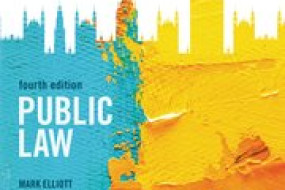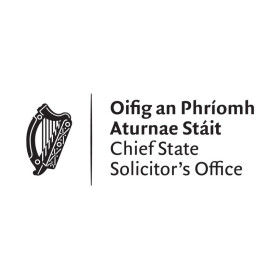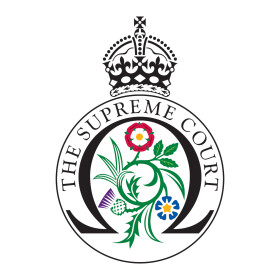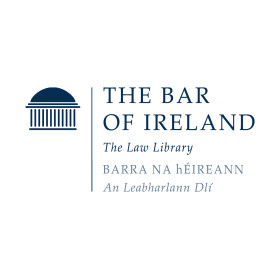Christopher Stanley, litigation consultant at Belfast-based KRW LAW LLP, reviews a new textbook on public law. As an English lawyer practising in Ireland – north and south – on a range of issues including the legacy of the conflict and the mother and baby homes scandal, to ask to review
Opinion
Eamon Gilmore marks the 70th anniversary of the signing of the European Convention on Human Rights. This week marks the 70th anniversary of the signing of the European Convention on Human Rights. One of the many initiatives to spring up in the immediate aftermath of World War II with the aim of real
What's in a legal system? Benjamin Bestgen supplies the principal ingredients. See his last primer here. Last week’s article ended with lawyer and author Christopher Brown’s suggestion that fantasy authors could do more to make law and legal systems an explicit focus point in their works
The U.S. Department of Justice (“DoJ”) civil lawsuit against Google, filed at the US District Court for the District of Columbia (the “District Court”) on 20 October 2020, is a first step in what will doubtless be lengthy, highly contentious litigation. Google Chief Legal Off
The Residential Tenancies Act 2020 (the “RTA 20”) temporarily prevents the eviction of residential tenants (in all but exceptional cases) from taking place during Level 5 restrictions. The RTA 20, which was signed into law Saturday 24 October, is the latest in a number of temporary measu
On 25 September 2020, the Supreme Court ruled in two separate judgments that where a public body decides not to disclose certain records (on the basis of an exemption under the Freedom of Information Act 2014 (the “Act”)). The reasons for the decision must be fully explained, and the pub
Claire Edgar of Francis Hanna & Co Solicitors examines a recent case concerning the Hague Convention on the Civil Aspects of International Child Abduction. The High Court in Belfast has recently handed down a decision in the Matter of K (a minor), a Hague Convention case in which Francis Hanna &
Benjamin Bestgen considers how the law might grapple with nanoscience. See his last jurisprudential primer here. Imagine you are trying to conceive a child using artificial methods. A robot so tiny you could breathe it in without noticing selects the most promising sperm and directly inserts it into
Félim Ó Maolmhána explores the drama surrounding Trump's proposed appointment of Amy Coney Barrett to the Supreme Court of the United States. Ruth Bader Ginsburg served on the US Supreme Court for over 27 years. In the wake of her sad passing, President Donald Trump aims to fill
Leo Mattersdorf, friend and accountant of Albert Einstein, claimed the great physicist once said to him during a meal that "the hardest thing in the world to understand is the income tax". Benjamin Bestgen this week takes a look at this divisive subject. See last week's jurisprudential primer here.
Mason Hayes & Curran LLP partner Niall Michel and trainee Kate Moloney consider a ruling in which the High Court confirmed its role in reviewing the findings of misconduct. Recently, in Law Society of Ireland v Daniel Coleman1, the High Court provided guidance on the respective scope of:
Ronan Hynes, partner at Sellors LLP, considers the accelerated growth of litigation technology arising out of Covid-19. The recent call for action by the Restaurants Association of Ireland to deal with commercial landlords (some of whom continue to charge their tenants full rent rates during the Cov
In the third of his articles on free speech, Benjamin Bestgen stresses that freedom of expression must be examined in context. See his last piece here. In many societies worldwide, people need to be cautious with their personal expressions, be it through speech, fashion, lifestyle choices, hobbies o
Dr Laura Cahillane, lecturer in constitutional law at the University of Limerick, considers the Denham report. The report of the inquiry carried out by former Chief Justice Susan Denham into the conduct of Mr Justice Woulfe in attending the golfgate dinner was published yesterday. The report conclud
Conor Fottrell, partner at Mason Hayes & Curran LLP, considers the key issues in reporting childcare cases in the media. There was significant public reaction recently following a report which appeared in national newspapers arising from an application under the Childcare Act brought before the






















